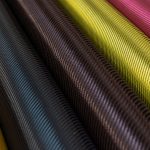Custom-moldable insole company, Sole, reported it launched a new sustainability report promoting transparency and addressing “greenwashing in the footwear and fashion industries.”
The company said: “With the footwear industry responsible for 700 million tons of greenhouse gas emissions annually, and significant shifts in consumer attitudes towards sustainability, Sole considers providing accurate, digestible information to be the next step in revolutionizing shopping behavior to benefit customers and the environment. Taking inspiration from the nutrition facts found on food packaging, Sole’s new sustainability reports provide shoppers with a clear and concise understanding of the environmental impact of each insole, empowering individuals to make more informed purchasing decisions.”
Since the early 1990s, food producers are required by law to label all products as a source of information for consumers. Similarly, Sole said it “recognizes the importance of transparency and accountability in the sustainability journey.” The company’s new Sustainability Report provides “a comprehensive overview of the ingredients going into each footbed, highlighting the percentage of recycled materials. It also provides a breakdown of the product’s entire carbon footprint, accounting for the energy required to produce, transport and even heat mold the footbeds in a [consumer’s] oven at home. This information allows customers to truly understand the environmental impact of their purchase and to confidently and easily make more sustainable choices,” said the company.
“This is about doing business in a way that makes us feel proud and helping our customers make decisions that align with their priorities. Many of our customers recreate outdoors and care deeply about how our actions impact the natural world. Their concerns matter, and we’re determined to show that we take them seriously,” said Mike Baker, Sole founder and CEO.
Sole continued: “The introduction of nutrition facts on food products marked a pivotal moment in improving public health at a time when vague and unsubstantiated claims of health benefits were used as a marketing tool to influence consumer behavior. It is anticipated that the adoption of environmental impact labels on products will have a similar positive impact, helping to combat the issue of greenwashing. As companies strive to stay relevant in light of changing consumer behavior towards sustainability, deceptive practices or exaggerated environmental claims have become widespread.”
Sole implemented several “major initiatives to reduce its environmental impact,” including launching ReCork in 2008 which has since “grown to be North America’s largest cork recycling program, having reached a milestone of collecting over 130 million corks earlier this year.” Sole also investing in the development of “fully recyclable high-performance, carbon-negative composite materials using natural recycled cork through ReCork.” This breakthrough material will be introduced in Sole’s upcoming launch of new styles of cork sandals and insoles, accompanied by a circular takeback program to “unlock full circularity for Sole.”
The new labeling system is now available on all Sole coreline footbeds and will for all future products.
Photo courtesy Sole







